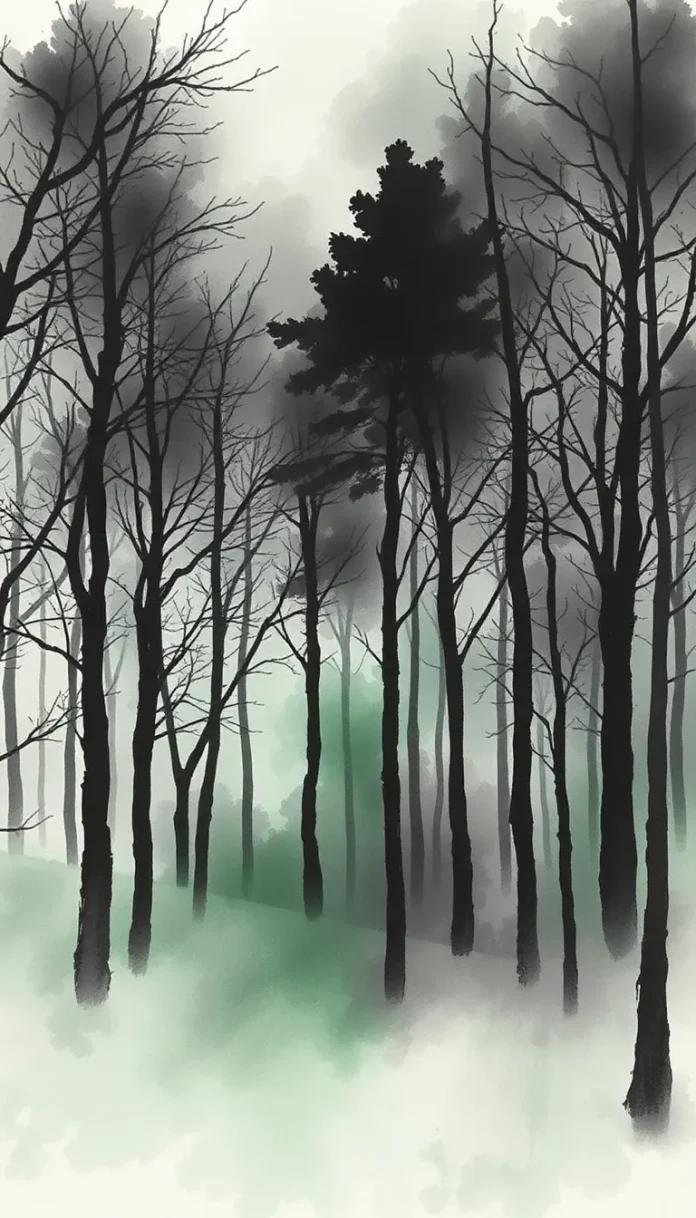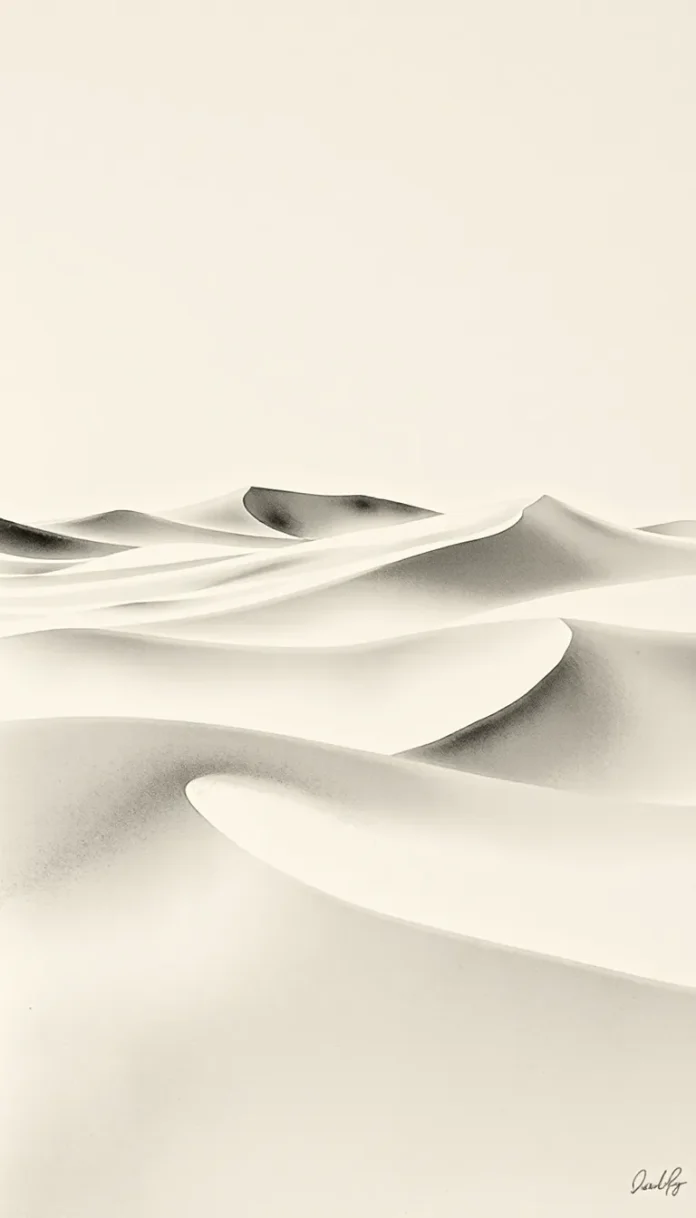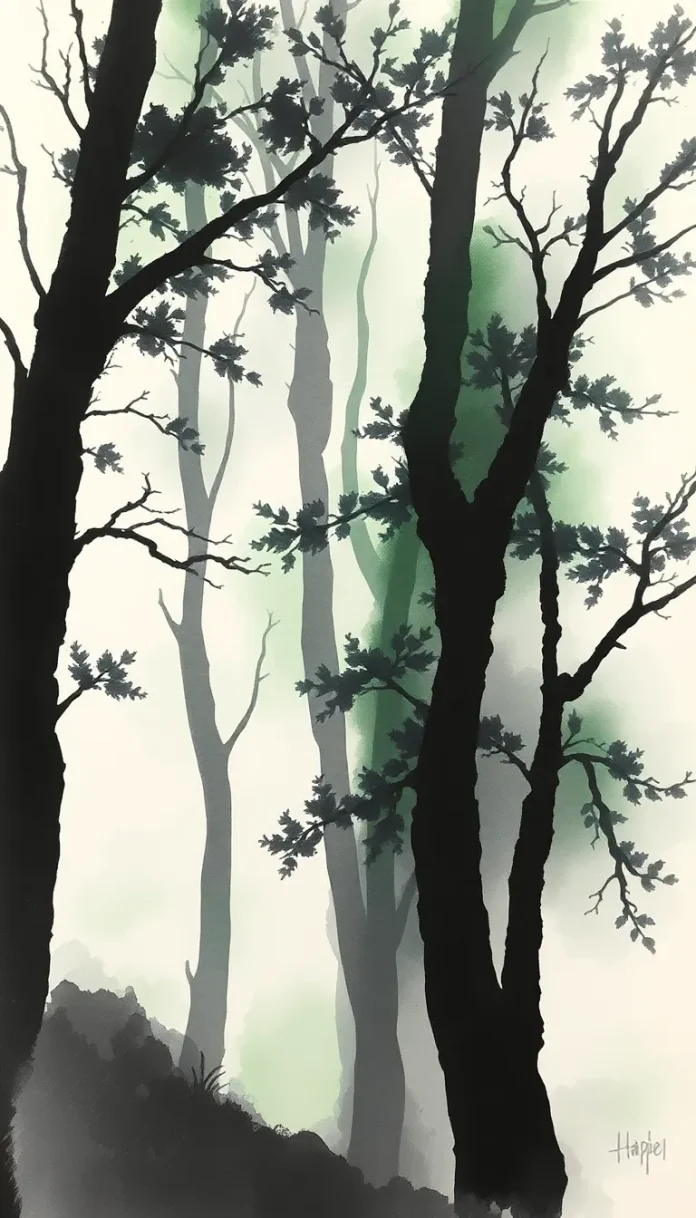Celestial Mournings of the Eternal Observer
I.
Beneath a sky where each successive eclipse drew forth the somber shadow of destiny,
Observateur strolled the ancient lanes of time, where whispers of fallen stars murmur the secrets of ephemeral beings.
His eyes, deep reservoirs of sorrow and reverence, beheld a world marked by the inevitability of decline;
The heavens above, shrouded in perpetual twilight, bore witness to the accursed ballet of fortune and fate.
“Alas,” he murmured to the drifting mist, “what profound melancholy resides in the cycle of life and death.
Is it not the tragic melody of our existence, interwoven with the frailties and inevitable solitude of human plight?”
In this reverie, he recalled epochs of fleeting grandeur, impermanent as the passing luminescence of a dying comet.
II.
Far along the desolate avenue of remembrance, ancient trees arched like sorrowful sentinels,
Their gnarled limbs reaching skyward as though to grasp the remnants of lost dreams amid the relentless obscurity.
The ground below, veiled by autumn’s decay, whispered of the transient nature of mortal hopes,
And the wind, in mournful cadence, sang of bygone eras when hearts beat with the fervor of unyielding passion.
Thus began his pilgrimage—a solitary wanderer seeking solace in the silent elegy of the lands.
He trod through fields once resplendent with the blush of youth and vigor, now subdued under the pall of fate’s decree.
Every step, an incantation to memory; every glance, a verse in the endless dirge of human submission.
For Observateur knew that even the sun, when forced into the realm of eclipse by inexorable will,
Must yield to the encroaching night that marks the final turning of the cosmic wheel.
III.
In the town of faded grandeur, where ivy-clad stone and time-worn facades spoke of bygone splendor,
He encountered a solitary figure—a distant echo of the life that once pulsed with the vibrance of youth.
Her eyes, reflective pools of dissolved hope, mirrored the tragedy that dwelled in every overcast glance,
And in her lament, he discerned the familiar language of fate—a dirge resonating with the heaviness of lost days.
“Tell me,” he implored, his voice a tender whisper amid the urban decay, “do you not perceive the inescapable fate that engulfs us?
Is there aught but the ceaseless sorrow that weighs upon our fragile existence?”
She, the personification of despair, replied with a voice that trembled like the final sigh of a dying wind,
“Indeed, I see the tapestry of our lives, woven with threads of both beauty and sorrow, intertwined by the hand of destiny.”
Thus, together they wandered the cobblestone paths, their steps harmonizing with the somber cadence of their shared melancholy.
For in the communion of lost souls, there lingered the vague hope that perhaps, amidst the inevitable decay, some meaning could be gleaned.
Yet, the very nature of existence, as illuminated beneath the eclipsed heavens, assured them of the futility of all attempts to elude fate’s decree.
IV.
As twilight deepened, and the hazy luminescence of dying stars flickered in the eternal gloom,
Observateur paused at the edge of an ancient ruin—a remnant of a time when hope had yet to succumb to despair.
Amid the crumbled walls and remnants of faded artistry, he sensed the echoes of a thousand silent tales,
Each a testament to the resilience and, alas, the fragile futility of the human spirit.
There, amidst the vestiges of past grandeur, he recalled the incantations of nature—its cycles, ever bending towards inevitable decay.
“Behold the morrow,” he intoned, as if addressing a congregation of unseen destinies, “for it is sculpted in the visage of our final breaths.
What is life but a transient flicker in the vast expanse of time, doomed to be smothered by the relentless advance of oblivion?”
In this moment of profound reflection, the memory of his own mortal yearning emerged, deep and unyielding, as a force both beautiful and terrible.
The celestial gloom above, with its myriad of eclipsed gems, was a mirror to the inner workings of the soul—a canvas upon which the tragedies of existence were painted.
V.
In the silence of that spectral moment, Observateur’s thoughts took flight, traversing realms where time and memory entwined.
He recalled a youthful era when hope shimmered like dew upon the petals of spring and every moment was an ode to unbridled passion.
But the inexorable march of fate, like a somber river heedless of the desires of its banks, carried him to this desolate shore—
Where every star’s disappearance whispered the melancholy truth: All that lives must wane, and all beauty must succumb to the inevitable embrace of decay.
His inner monologue resonated with the timeless question: Is the condition of man merely to be at the mercy of destiny, bound by the chains of fatality?
For like the celestial tapestry above—eternally obscured by the relentless cycle of eclipses—
The human plight is but a series of fleeting moments, each destined to be lost in the vast expanse of an unforgiving cosmos.
VI.
One fateful evening, as the heavens were cloaked in a spectacle of successive eclipses that dimmed the light of forgotten gods,
He found himself upon the dilapidated banks of a once-glorious river. Its waters, now murky with the debris of time, murmured of ancient sorrows.
A solitary figure, clad in the hues of twilight and nothing else, appeared across the water—a wanderer burdened by the same melancholic resolve.
Together, in quiet accord, they sat upon a crumbling stone, their eyes reflecting the mournful ballet of the eclipsed firmament.
“Tell me, dear friend,” Observateur addressed the stranger in a tone both gentle and laden with lament, “do you reckon there is liberation in the surrender to fate?”
The stranger, with a voice like the rustle of forgotten leaves, replied, “Freedom, if it exists, hides in the acceptance of our transient plight.
We are but echoes of what once was—a murmur in the ever-changing cadence of destiny.
The condition of our existence is woven with threads of inevitable sorrow, and to hope otherwise is to defy the very nature of life.”
Their conversation, like the murmur of the wind through barren fields, drifted on into the quiet of the night—each word a reflection of the tragic beauty inherent in the human condition, each silence a testament to the inescapable reach of fate.
VII.
Night yielded to a ghastly dawn, heralded by an eclipse more profound than any before. The sky, a canvas of starless sable, evoked the sorrow of an entire epoch’s demise.
Observateur, lost in reverie amidst the desolation, wandered further into the bleak landscape, where ruins of civilization testified to the passage of time and the endless cycle of life and decay.
Every fallen petal, every whispered echo in the cascade of forgotten memories, was a sonnet to the ephemeral beauty of existence—a beauty that, though radiant, was doomed to be consigned to oblivion.
Hours turned to days, and his journey led him to a grand estate, once a beacon of hope and human endeavor, now surrendered to the inexorable grip of decay.
In its crumbling corridors, where faded portraits gazed mournfully from tattered walls and the remnants of grandeur whispered of past effulgence, he encountered a solitary contralto of despair.
Her voice, tender and laden with the inevitability of sorrow, rose in a soft and elegiac tone, recounting tales of joy turned to melancholy and dreams shattered like fragile glass in the relentless storm of fate.
“Is it not, dear heart,” she intoned as they wandered through the hollowed halls, “a tragedy that we, the fragile vessels of hope, must ever serve as witnesses to the decay of our own aspirations?”
Her words, drawn from a well of forlorn memory, resonated with the observer, igniting in him a renewed sense of the tragic beauty of human existence.
Together, they wandered amid the vestiges of splendor, their dialogue a subtle communion of souls adrift in a sea of inevitability, each step both a tribute to what was and a lament for what could not endure.
VIII.
Time, that relentless sculptor of destinies, spared none from its unyielding chisel. Observateur, with every passing moment, felt the inexorable burden of his own mortality.
He began to see within the cyclic grandeur of eclipses a metaphor for the human heart—a luminous burst of radiance inevitably cloaked by sorrow.
Every cycle mirrored a journey from hopeful rise to inevitable decline; every eclipse was a reminder that even the brightest flame must one day surrender to darkness.
In quiet soliloquies beneath the indifferent, ever-dimming sky, he mused upon the image of a once-thriving orchard, now encumbered by the bitter fruits of decay.
“Are we not, each of us, akin to these withered boughs—once vibrant and full of promise, now resigned to the inevitable curse of time?”
Thus, in the solitude of those desolate hours, his soul was laid bare before the vast tapestry of existence—a tapestry embroidered with both the inevitable scars of fate and the rare, bittersweet luminescence of transient beauty.
IX.
At length, the great clock of destiny struck a final, aching note—a prelude to a sorrowful culmination foretold since time immemorial.
Observateur found himself upon the precipice of a towering cliff, overlooking a chasm as deep and unfathomable as the void that lurked in the recesses of the human heart.
The eclipsed heavens above mirrored the abyss below, a silent testament to the tragic futility that pervades all mortal endeavors.
In that forlorn moment, he beheld the culmination of his journey—a convergence of memory, sorrow, and the inescapable truth of fatal destiny.
With trembling voice, he addressed the silent void, “I have borne witness to the cyclical dance of life and the inevitable descent into oblivion.
Yet, in this ever-darkening firmament, how may one find solace when the stars themselves have relinquished their light?”
His lament, echoing through the desolate expanse, carried the weight of countless souls whose dreams had withered like autumn blossoms under the relentless advance of night.
The wind, as if in mourning, stirred the tattered remnants of his worn coat, and the ground, scarred by the footprints of a thousand lost wanderers, seemed to sigh in unison with his despair.
For in every fallen leaf, every extinguished spark, resided the somber testament to the human condition—a perpetual struggle against the inexorable advance of fate.
X.
In a final, heart-wrenching soliloquy beneath the waning glow of a perfunctory eclipse, Observateur des cycles de vie beheld the tragic unity of all that had been and all that must come to pass.
The spectral beauty of the shattered cosmos, with its vacant splendor and lingering echoes of former glory, imparted a truth as desolate as it was profound:
That every life, every ephemeral dream, is but a brief interlude in the eternal symphony of decay—a symphony whose elegiac refrain is etched in the annals of time.
As the final vestiges of light were subsumed by the overwhelming dominance of night, he whispered to the endless void,
“In the relentless theatre of existence, where fates are inscribed by the immutable pen of inevitability, must all beauty be consigned to sorrow?”
And with that, his voice—laden with the inexorable sadness of a soul resigned—fell silent, swallowed by the all-encompassing gloom.
XI.
Thus, in the melancholy twilight of his solitary pilgrimage, with the heavens cast in eternal eclipse and the earth resigned to the inevitable decay of its glory,
Observateur des cycles de vie embraced the harsh verity of his destiny, the cruel irony of a life spent seeking meaning in a cosmos that offered none.
In the silent ruins of that once-thriving estate, amid the echoes of dreams now dissipated as dust upon the wind, he understood that the tragic beauty of existence lay in its impermanence,
And that the human spirit, bound by the inexorable chains of fate, was destined to endure an eternal cycle of hope and despair—a cycle as ceaseless as the darkened heavens above.
In his final soliloquy, rendered beneath a sky that no longer held the promise of light,
He came to accept that the inevitable sorrow of life was not a malediction to be defied but a truth to be embraced.
With one last, lingering gaze upon the bleak firmament—a tapestry of shadow and fleeting memories—he murmured,
“Farewell, sweet vestige of hope; farewell to the light that once graced our tender dreams.
In this endless twilight, I am but a solitary echo, lost amidst the unyielding cadence of fate.”
And so, as the chasm of night quivered with the silent lament of a thousand unfulfilled destinies, Observateur des cycles de vie faded into the eternal gloom,
A solitary figure absorbed by the inexorable tragedy of his own mortal coil—a living testament to the bitter truth that all life, no matter how radiant in its inception,
Must ultimately surrender to the inexorable pull of fate, dissolving into the melancholic embrace of eternal darkness.
In that final, heartrending moment, the eclipsed heavens bore silent witness to the tragic culmination of his pilgrimage,
A solemn reminder that in the vast, indifferent expanse of existence, joy and sorrow are but transient harmonies,
And that the condition of the human soul is, forever and lamentably, tethered to the inescapable fatality of a life destined to fade.
Thus, with a concluding sigh that resonated with the sorrow of innumerable lost souls, the observer’s journey found its tragic terminus,
Leaving behind only the haunting echo of a life fully lived in the shadow of a world both sublime and irrevocably forlorn.
In the enduring quiet of that final eclipse, as the last vestiges of hope were swallowed by the abyss,
The eternal lament of human existence was etched indelibly into the heart of night,
A timeless elegy for all the dreams and lives that had, in the cosmic dance of fate, been consigned to sorrow and oblivion.
And so, the celestial chronicle of despair and beauty, as witnessed by the ever-watchful Observateur des cycles de vie,
Concluded in a fleeting moment of tragic inevitability—a moment when the diminished light of the heavens,
Like a forlorn requiem, signified not the promise of a new dawn but rather the enduring melancholy of an existence
Forever destined to be shrouded in the silent, irrevocable gloom of fatal despair.


